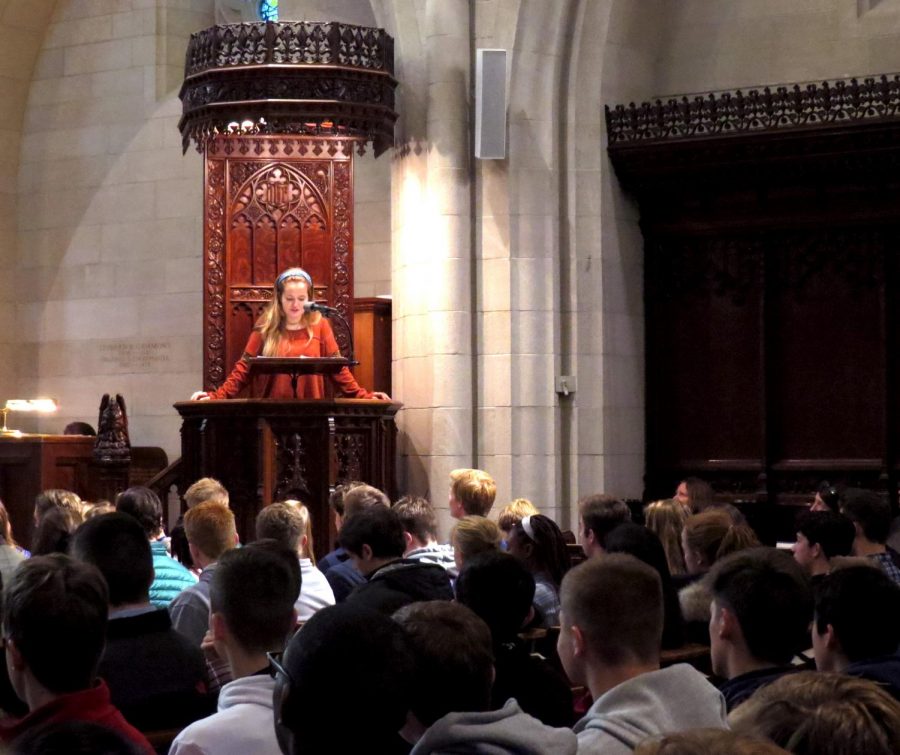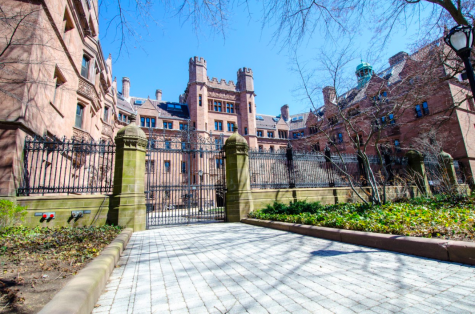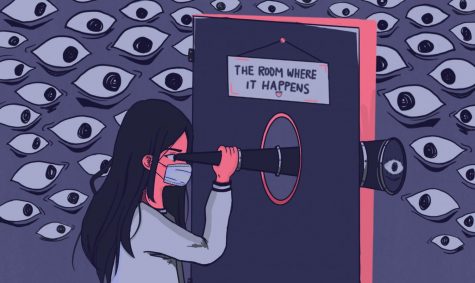A Chapel Talk for Every Sixth Former
The chapel talk is arguably the most important tradition at Groton. It is the one time when a senior has the attention of the whole school, free of any prompt or guidelines beyond basic decency. It gives each student the chance to reflect, open up to their peers, and inspire others — certainly an opportunity that ought to be granted to every sixth former.
This year, an exceptionally high number of seniors want to give chapel talks, but some students will be unable to. Why? The issue isn’t a lack of morning chapel slots for everyone who wishes to give a chapel talk; the issue is that guest speakers, student groups, and music groups have crowded out sixth formers. This year, there were just 78 available slots for a senior class of 85 people, despite the fact that we meet for morning chapel almost one hundred times over the course of the year.
Many of our guest speakers have interesting talks to give, but the fact is that they are (at least in some degree) outsiders – not a direct part of the Groton community. Thus it seems odd for the School to give chapel talks to them over Groton students. And this is in no way to discredit the talks and stories of outsiders, but rather to say that chapel talks occur in a deeply communal setting and thus should be communal. Student groups and music groups are great, but not if they displace seniors. I’d rather hear my friends and peers, whom I have known for years, share their stories.
Groton has been incredibly important in shaping each and every person in the Class of 2018, but after this year, the Groton chapter of our lives will end. It seems only fair to me that every one of us who wishes to give a chapel talk should have the opportunity to do so.
According to Chaplain Christopher Whiteman, the issue is not one of malice but misunderstanding. Chapel talks are intended as talks only – they are not exclusively intended senior students. The chapel talk breakdown this year is as follows: nine by faculty members, eight by student groups (two of which chose to invite outside speakers), eight by music groups, three by trustees, three by Mr. Maqubela, three by spiritual life leaders, and one by an alumnus. Seniors will deliver 70 talks this year, and considering student groups and musical ensembles, students hold about 80 percent of chapel talk slots.
Until we properly define what morning chapel is, the debate over senior slots can’t go anywhere. As stated in the student handbook, “St. John’s Chapel occupies a significant place both physically on the Circle and philosophically in our daily lives.” There is no doubt that this is true; on top of religious services every Sunday and traditions like Lessons and Carols, we attend morning chapel four times each week. The significance of the space could leave those who are unable to give chapel talks feeling like their Groton experience was incomplete. I propose that the school presents the situation at hand to guests this year that may be able to reschedule in order to give more seniors the opportunity. If it is too late to help the seniors of this year, though, I think the school owes it to the seniors of the future to ensure that they can all speak.
To solve this issue, I think that we must push the administration to define chapel talks as a tradition for seniors. Each year, the senior class moves on to new places, and the chapel talk ensures that everyone can finish their time here on the best note possible. Designating chapel talks as a senior privilege would allow all of the seniors that desire to speak the opportunity to do so and strengthen student-faculty relationships because such an action shows greater respect for the seniors on the School’s behalf. If chapel talks are meant to be primarily for seniors, there will never again be a shortage of available slots, and more often than not there will still be leftover spots for non-senior speakers to fill.










